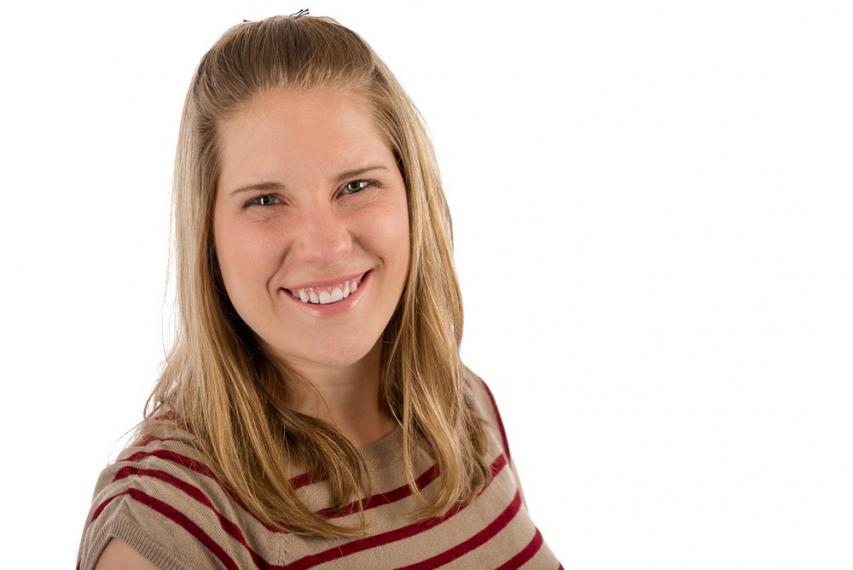Kim Levere

Dynamical systems allow us to formulate mathematical models that can help us to describe real-world phenomena. From chemical reactions, to structural components of your home, through to even the mathematics of emotion, I enjoy learning how to understand these things mathematically! Implicit in these sorts of studies, I also get the chance to use numerical methods, analysis, computing, statistics and optimization skills. I love to see the Mathematics and Statistics that I have learned (and now teach to students) come alive in the real world.
I have come to discover that some models can be used for predictive purposes when done inversely. That is, starting with an answer and working toward some other part of a mathematical model. For instance, I have explored the use of such inverse problems in ecological modelling for the preservation of fish colonies when faced with the possibility of drought, or detecting the contraction of a disease in the body based purely on current x-rays.
In addition to my discipline-based research, teaching is a huge part of my life. As the instructor of a number of entry-level mathematics and statistics courses, I am constantly looking to bridge gaps between high school and University Calculus. I aim to make this transition as smooth as possible, while improving student learning and experience. As a backbone to so many different disciplines, I strive to motivate the study of Mathematics and Statistics beyond textbook problems and the classroom and open the eyes of students to their many real-world applications and uses.
- Inverse Problems
- Dynamical Systems and Modelling
- Fractal-based Methods in Analysis
- Fractional Calculus
- Numerical Methods
- Optimization
- Mathematical Preparedness for University
- Numeracy Initiatives
- Delivery of Entry-level Mathematics
- Accessibility in Learning
- An Inverse Problem for a Fractional Differential Equation Model
Samantha Frattaroli (2016), Undergraduate Research Project - The Effect of a Time-Dependent Population Model on Housing Prices
Ervin Uzonovic (2016), Undergraduate Research Project - An Inverse Problem for a Fractional Differential Equation Model
Brent Van De Walker (2017), Undergraduate Research Assistantship - Investigating Student Performance Based on Study Habits and Student Perceptions of Preparedness
Chisomeje Umeonyido (2017), Undergraduate Research Assistantship (funded by PSEER) - The Mathematics of Human Gait: A Model for Ageing Joints
Valerie Bauman (2018), Undergraduate Research Project - Modelling of Fruit Beer Production
Charlotte Coates (2018), Undergraduate Research Project - Comparison of Collage-Based Techniques to Other Popular Inverse Problem Techniques
Mehdi-Abderrahman Jabri (2018), Undergraduate Research Assistantship - Using Inverse Problems for PDEs to Identify Materials from Field Data
John Dewhurst (2018), Coop Placement and Research Assistant - Investigating Grader Consistency Using the Crowdmark Grading Platform
Michael Moore (2017-2018) Ph.D. Student (project collaborator) - A Collage-Coding Framework for Solving Inverse Problems for Differential Equations with Boundary Data
Victoria Brott (2018), (co-advisor) - Optimizing the Efficiency of Dairy Cows
Ginna Reyes (2018) Ph.D. Student (advisory committee)
B.A. in Mathematics (University of Guelph), 2007.
Ph.D. in Mathematics & Statistics (University of Guelph), 2012.
- University of Guelph Faculty Association Distinguished Professor Award for Innovation in Teaching, 2016
- Favourite Fall Professor, University of Guelph Student Housing, 2017 and 2019
- Competency-based Education Funding from the Ontario Ministry of Education and D2L, 2018
- Recipient of Learning Enhancement Fund Grant for Enhancing Assessment in Foundational Mathematics Courses, 2016
- Recipient of a PSEER Grant for the development of a tool for detecting the consistency of grading amongst TA grading, 2018



